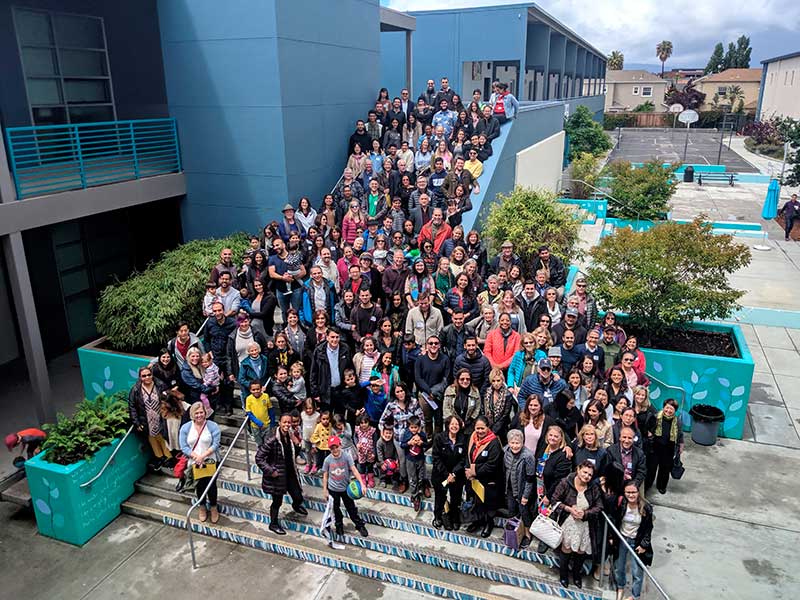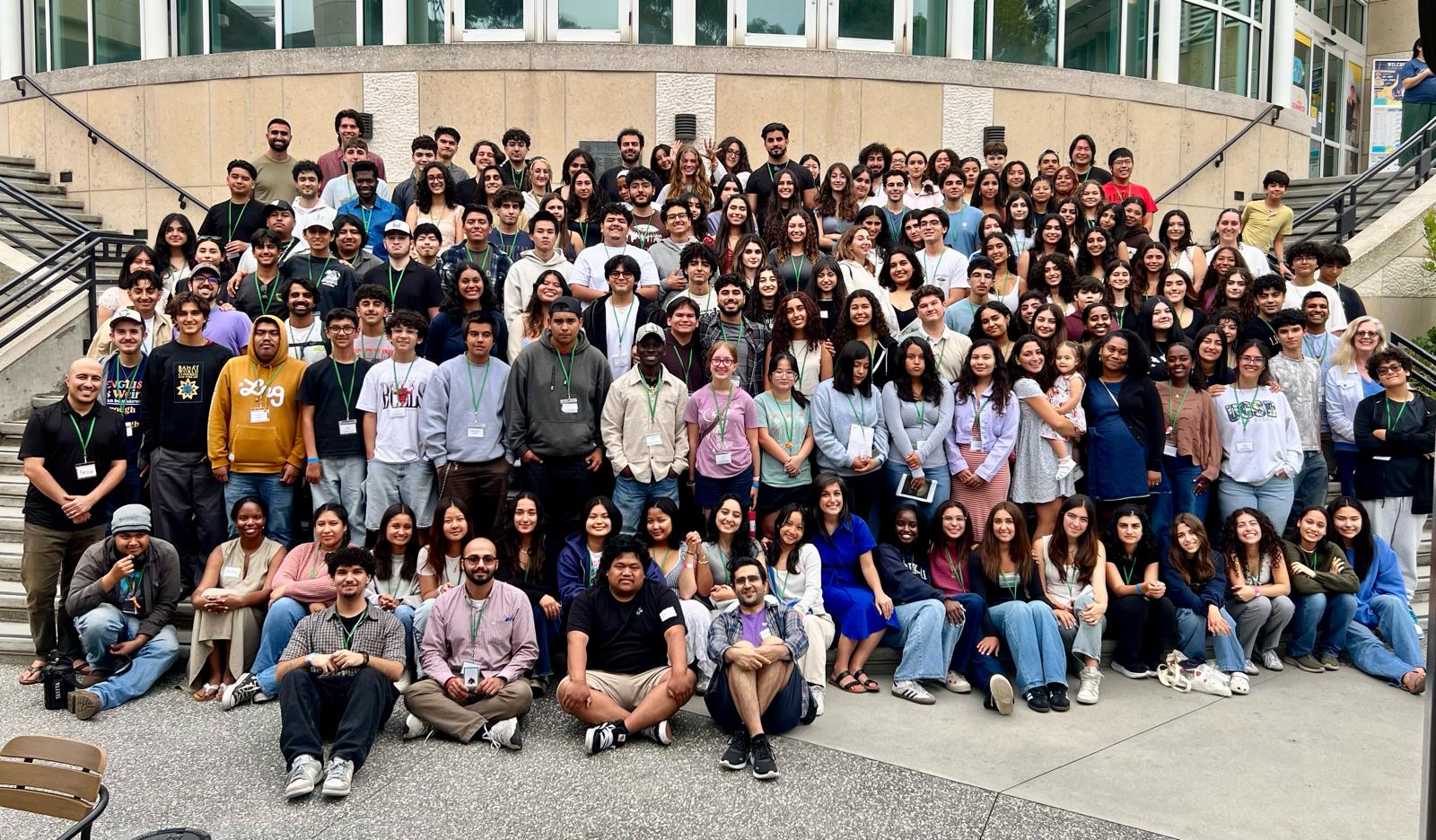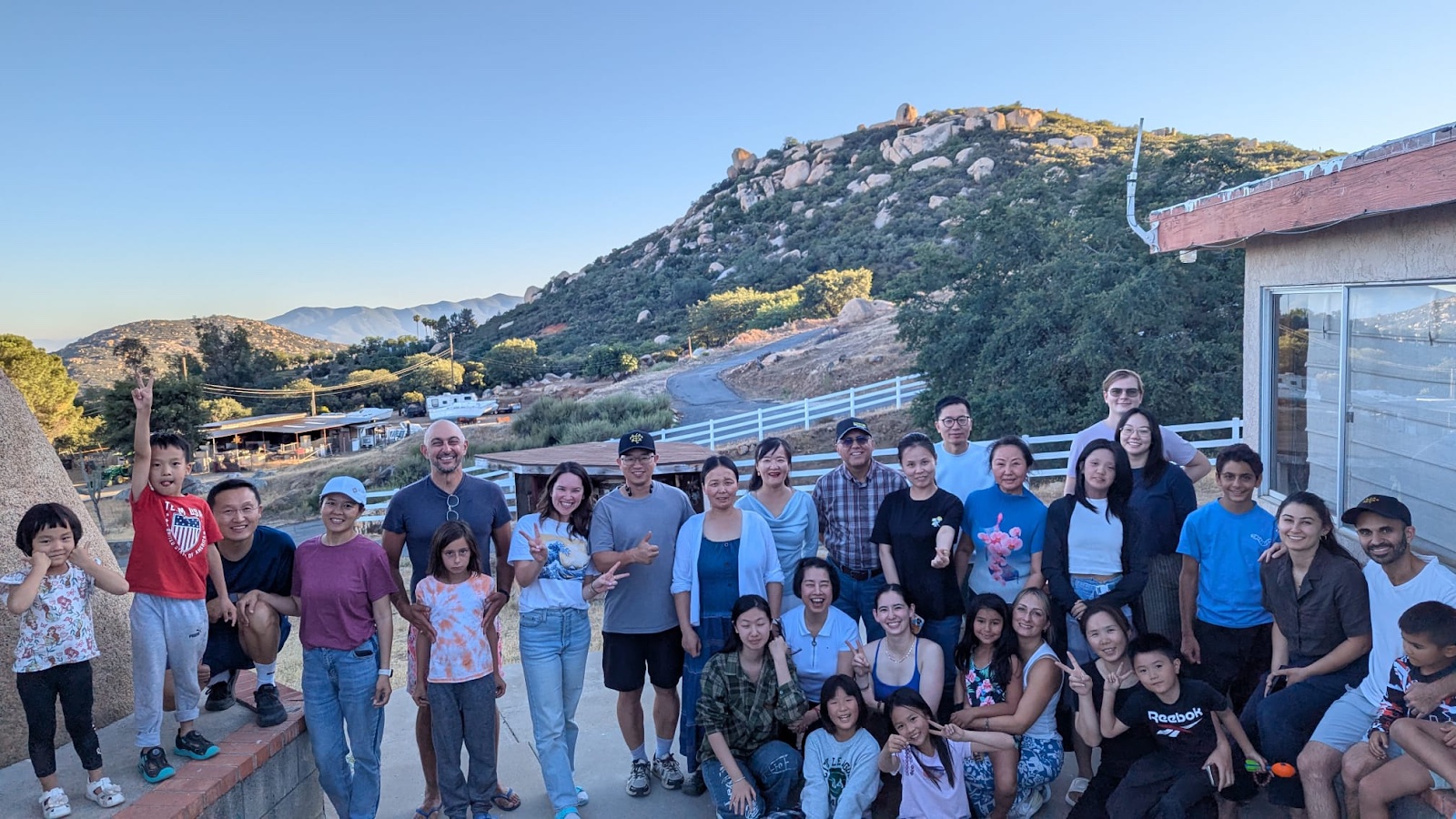
Back home in Memphis, a young Baha’i sets out to build community
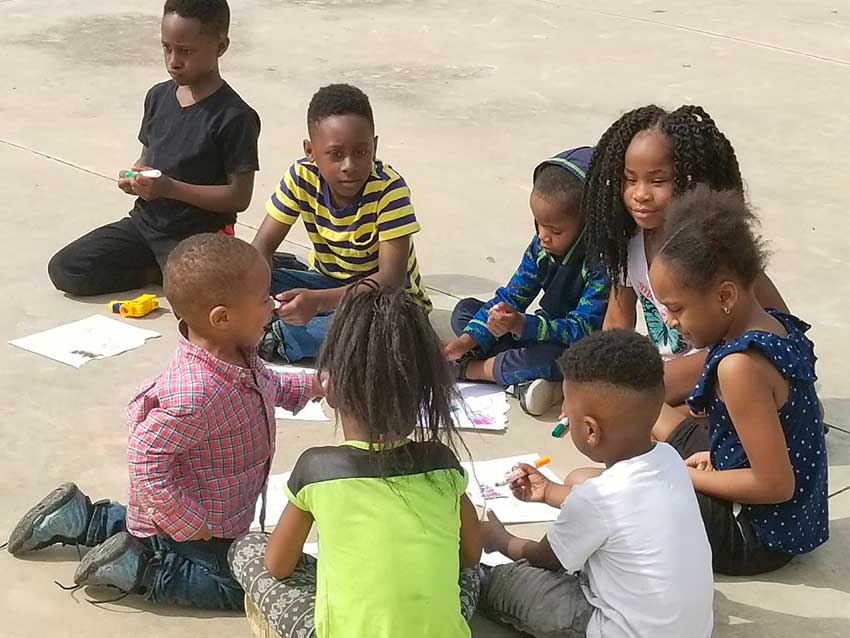
Antonio Smith is back home in Memphis, and Baha’u’llah’s vision for humanity is his passion. He has been sharing that vision with neighbors, family members and students at his former high school, and some of them are discovering that they have a role in advancing it.
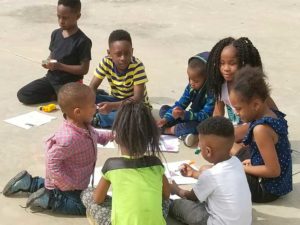
At the same time, he is working alongside fellow Baha’is in western Tennessee as they gain the confidence to talk with neighbors about serving their community and to provide paths for that service.
In all this, he is drawing on community-building experience he gained as a participant in the South Carolina Enterprise. That initiative enables young Baha’is, especially African Americans such as Smith, to move to towns and neighborhoods where that kind of activity is intensive.
Smith, 26, is also paying attention to what’s being learned about strengthening the spiritual and material progress of neighborhoods in such places as Raleigh-Durham-Chapel Hill, North Carolina, and Jackson and Nashville, Tennessee.
He came, with a plan
It was concern for “the state of my friends and family in the city” that drew Smith back to his hometown last December from South Carolina, he says.
Local Baha’is were delighted. “I remember praying for Antonio to choose Memphis when he was deciding where he would relocate, praying Baha’u’llah would guide him to come home to Memphis,” says Marjie Baker.
He came, indeed — with a plan: He would offer students at his former high school a program he calls Wayfarer. It combines ACT test preparation with courses from the Ruhi Institute that help develop skills for effecting personal and societal transformation.
Simultaneously, Smith would work within neighborhoods to foster Baha’i-initiated core activities of community building.
Sounds ambitious, Jan Peterson thought when Smith presented his plan to the Local Spiritual Assembly, the Memphis Baha’i governing body, of which she’s a member. “But Antonio is dauntless,” she says, “while at the same time systematic and goal-driven.”
After several months Smith can say, “Overall the process has been great. There have been a plethora of challenges that arise at every step, and each challenge has been followed by decisive victories.”
What does a victory look like? One came during spring break when a training program for the students achieved the goals Smith had set for it: “to assist participants to gain a greater awareness of the work of the Baha’i community, for participants to advance in the sequence of [Ruhi] courses, and for participants to engage with and offer service to the community in a variety of ways.”
Ups and downs and valuable learning
That week of study and service had its ups and downs, but it taught Smith and the local Baha’i community a lot about how to put that kind of effort into motion.
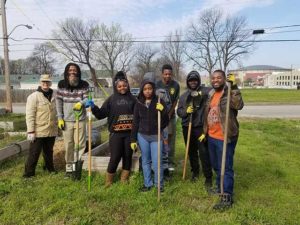
Peterson was one of several Memphis Baha’is who assisted the initiative. “Here was a group of high school students on a beautiful spring week in March,” she recalls, “engaged on one of the evenings in a meditation exercise and the next evening in lively discussion of a quote [from the Baha’i writings.]”
Several participants were unable to complete the program because of other commitments, and some aspects of the training didn’t go smoothly. But the two youths who completed the program, Smith’s cousin and her friend, “have both shown a keen awareness of the aims of the program — an awareness that I am continuing to nurture,” says Smith.
“Both are engaged in offering service to the community and both have completed Book 1,” Reflections on the Life of the Spirit, in the Ruhi sequence, he says.
One, in fact, has completed Book 5, Releasing the Powers of Junior Youth, helping him prepare to serve as an animator, or facilitator, of a junior youth group. But Smith says progress at that speed is unusual.
“My primary focus is on those like my cousin and others who have tentative interest and need to be nurtured systematically in order to be able to offer service and eventually recognize the grandeur of Baha’u’llah,” he says.
“I am really concerned about what it means to create the climate that nurtures the soul over time and … develops its maturity.”
Activities strengthened, multiplied
An immediate outcome of the spring break initiative was a weekly youth night for neighborhood kids. Smith and that group also began regularly visiting Jackson, Tennessee, about an hour away, to work with young people and take part in a study circle there.
As for Smith’s work in the Memphis neighborhoods, he has helped strengthen existing core activities — children’s classes, junior youth groups, study circles and ongoing devotional gatherings — and increase the number of those activities from four to 11.
Paul Herron, a local Baha’i, recalls, “I was working with several animators in the Garden Manor apartment complex when Antonio arrived as a homefront volunteer. He helped with the junior youth group and revitalized the children’s class we had going at the time.
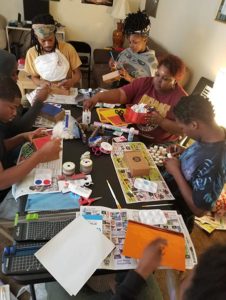
“Antonio also began to build far greater community than what we were able to do before his arrival,” says Herron. He notes that Smith organized and brought Baha’is into training courses, including an intensive Book 5 study.
Nabil Ahlhauser had already established a junior youth group at the Garden Manor complex by the time Smith arrived. The two young men, Herron says, are now “well known within the complex.”
Junior youths living there face constant “family, economic, and spiritual crises,” Herron says. He has noticed recently “that the junior youths find refuge with Antonio and Nabil.”
“I recall one Saturday morning … talking about the junior youth program and the Baha’i Faith with a mother of a junior youth. Antonio and Nabil had helped the family after their electricity was turned off,” he relates.
“Despite the challenge of getting back on her feet financially, the mother happily invited everyone over for dinner the following week. It was symbolic of the great relationships that Antonio and the other animators are developing throughout the apartment complex.”
Frisbee, and other connections
Ahlhauser recalls his joy at Smith joining him as a roommate and collaborator. “We immediately became close friends,” he says. “We would wake up early in the morning and have devotions together. Most afternoons, we would talk about what had happened throughout our day as well as how we could better be of service.”
For example, Ahlhauser felt that, as his background was different from that of the complex’s kids, he would struggle to connect with them.
“Antonio encouraged me to spend more time outside with the kids and junior youths. We went and bought a Frisbee and I started to just throw it around with the kids,” he says. Not only were those connections coming more easily, Ahlhauser started enjoying himself more.
Not that the roommates haven’t “been tested in our service,” points out Ahlhauser. Returning one day from a program that trains young Baha’is to engage in social action, “I discovered that my apartment was ransacked and the TV was gone. To make matters worse, we were pretty sure that the culprit was one of our neighbors.
“The thing is, we didn’t give up hope,” he says. “I remember wanting to be angry, but Antonio, somehow a lot calmer than myself, would remind me that we had chosen to live in the focus neighborhood, that God greatly rewards his servants who shed even one drop of blood in the path of service, and that our neighbors were our spiritual children.
“It was challenging because I really wanted to be angry, but Antonio had made it clear that I couldn’t be bitter.”
Toward self-sufficient service
As Smith reflects on those months, he says the activities underway “are fledgling, they are primarily sustained by me and they require much attention. But I am working continuously to develop the capacity of those around me to be self-sufficient in their service.”
Memphis Baha’is echo that, including Sharghi Rahmanian, who says they have “learned alongside him creative ways to reach out to the greater community, to engage those we meet in a meaningful discussion, and to build everlasting friendships founded on service to our neighborhood.”
Steve Bares adds, “I have been pleased and surprised to see how our local Baha’is and other partner communities have stepped up. …
“To support the long-term efforts in the neighborhood, the communities have aligned to back the activities, giving generously the resources needed to make it happen,” says Bares, who serves as treasurer of the Spiritual Assembly.
“Taking such action has helped to create a unity of purpose that I believe will influence the approach to other activities in our community.”
Just in time, says Smith, to carry out a training initiative similar to the one over spring break.
“The Memphis Baha’i community has little to no experience in having these kinds of campaigns, but they are eager to learn,” he says.
“I came here knowing that a lot of nurturing would need to take place, and I am set and ready to do it.”
Holley Seals-Lizarraga, for one, is excited by the prospect.
“I know that it has been invaluable for Antonio to dedicate his efforts to the focus neighborhood in this way as a homefront pioneer and integrate into the very fabric of the community in which he is serving,” says Seals-Lizarraga, an Auxiliary Board member appointed to assist Baha’i individuals and institutions in the area.
“Antonio’s efforts have inspired others to arise in various ways and offer their own ongoing acts of service, both members of the Baha’i community and friends of the Faith.” The team’s learning and insights, she adds, are being documented so that they can benefit other communities.


